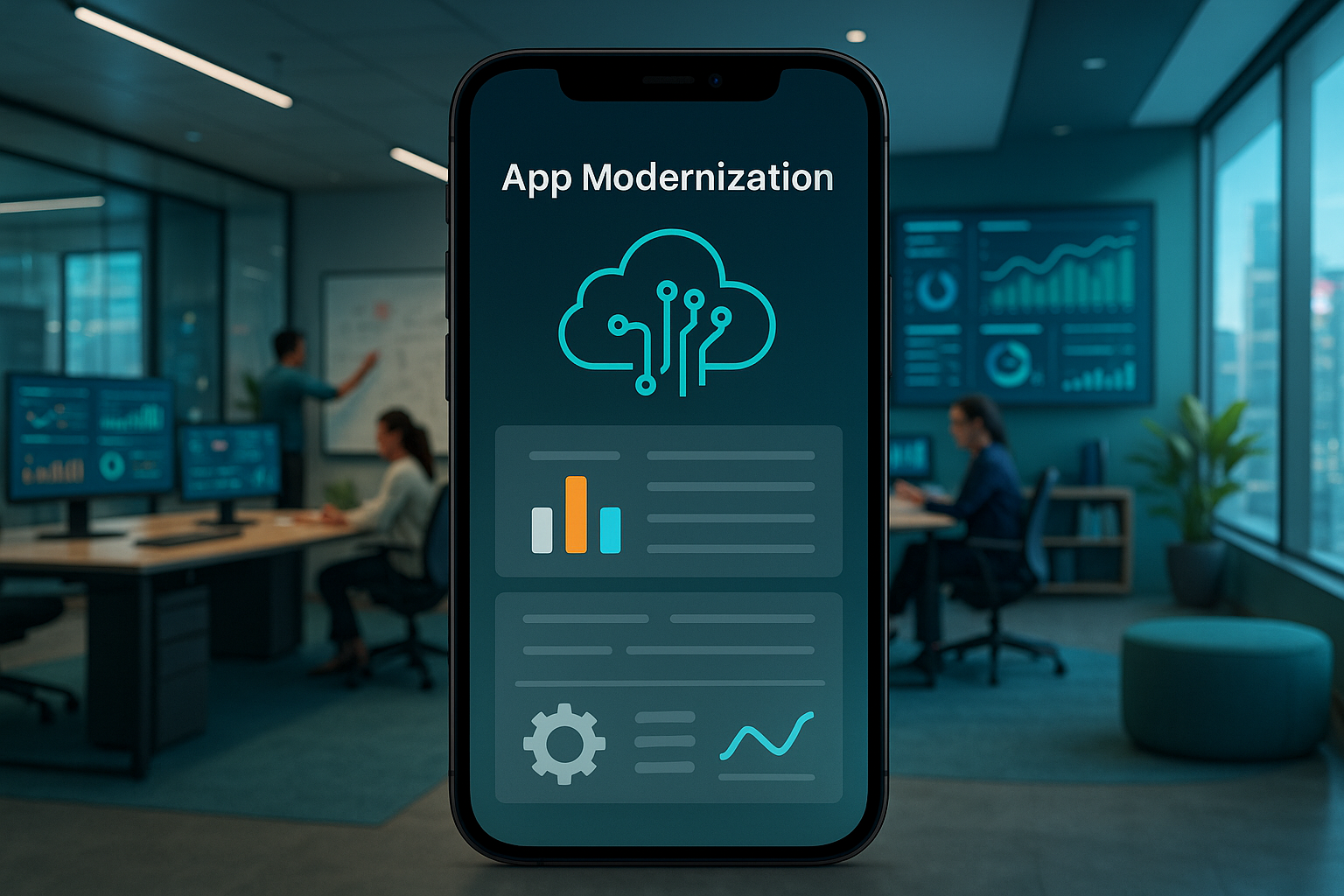Introduction
The Salesforce AppExchange represents a massive opportunity for businesses to extend the power of the world’s leading CRM platform. Launching an app on this marketplace can put your solution in front of millions of potential customers, creating a powerful revenue stream and establishing your brand within the Salesforce ecosystem. However, the path from idea to a successful, listed AppExchange app is fraught with technical hurdles, stringent security requirements, and strategic pitfalls that can derail even the most promising projects. Development is not merely a matter of coding; it is a complex process demanding deep platform knowledge, a forward-thinking architectural vision, and a relentless focus on user value.
Many organizations underestimate the difficulty of this journey, attempting to build in-house without the specialized experience required. This often leads to applications that are inefficient, fail the rigorous Salesforce Security Review, or deliver a poor user experience, ultimately wasting significant time and resources. This comprehensive guide is designed to illuminate the path forward. We will explore what an AppExchange app is, detail the common challenges of in-house development, categorize the types of applications available, and provide a transparent breakdown of development costs.
Furthermore, we will introduce the top development companies that can guide you, with a special focus on how we at MetaCTO can help. As a top US AI-powered app development firm with over 20 years of experience and more than 120 successful projects launched, we bring a unique perspective. While our roots are in mobile app development, our core expertise lies in the universal principles of building, growing, and monetizing exceptional software products. We understand that a successful AppExchange app requires more than just Apex code; it demands a robust strategy, a scalable architecture, and a plan for long-term evolution. We are the technical partners who can help you navigate the entire lifecycle, from concept to launch and beyond.
What is a Salesforce AppExchange App?
At its core, a Salesforce AppExchange application is a third-party solution that installs directly into a customer’s Salesforce environment to extend its functionality. Think of it as an app store, but specifically for the Salesforce platform. These applications are designed to seamlessly integrate with Salesforce data and processes, allowing businesses to tailor their CRM to meet highly specific industry or departmental needs without having to build custom solutions from scratch.
The AppExchange marketplace is a vibrant ecosystem of thousands of apps that address a vast array of business challenges. These solutions can range from simple utilities that add a single new feature to complex, enterprise-grade systems that manage entire business verticals. The power of an AppExchange app lies in its ability to leverage the existing Salesforce infrastructure—its security model, user interface, and automation tools—to deliver value quickly and efficiently.
Businesses and Independent Software Vendors (ISVs) develop these applications to solve problems across numerous domains. The types of applications available demonstrate this breadth, including solutions for:
- Sales Intelligence
- Marketing
- Customer Service
- Document Generation
- Project Management
- Integration
- IT & Administration
- Analytics
Ultimately, AppExchange apps are pre-built, installable packages that enhance, customize, or integrate with Salesforce, enabling users to get more value from the platform. For developers, it is a gateway to a massive customer base; for users, it is a library of tools to solve virtually any business problem.
Reasons Developing an AppExchange App In-House is Difficult
While building an in-house team to develop a proprietary AppExchange app may seem like a cost-effective approach, it is a path filled with hidden complexities and potential for costly mistakes. The AppExchange has high standards, and meeting them requires specialized expertise that goes far beyond general software development. Here are the most common challenges that make in-house AppExchange development so difficult.
Architectural and Scalability Failures
One of the most significant pitfalls is the failure to properly define the application’s architecture and design from the outset. Without a robust blueprint, development often becomes reactive, with features tacked on without considering their long-term impact. This leads to an inefficient and unscalable solution. A poorly architected app may perform adequately with a few users and a small amount of data, but it will quickly degrade as the user base, data volume, and feature set grow. Not designing for scalability from day one inevitably leads to significant performance issues, requiring expensive and time-consuming rewrites down the line.
Inefficient Development and Tooling
The Salesforce platform has a specific set of development tools and packaging models. Failing to use the appropriate tools can severely reduce development efficiency. For example, employing first-generation packaging for new applications is a common mistake that limits a package’s flexibility and makes future updates more cumbersome. An in-house team new to the ecosystem may not be aware of these nuances, leading to suboptimal choices that create technical debt before the app even launches.
Poor User Experience (UX)
Even the most feature-rich application will fail to gain traction if users find it difficult or frustrating to use. Several factors contribute to a poor user experience in the AppExchange context:
- Mobile Optimization: A significant portion of Salesforce users access the platform via mobile devices. Not optimizing an app for mobile can render it nearly unusable for field sales reps, service technicians, and other on-the-go professionals, leading to a frustrating experience.
- Error Handling: Inadequate error handling can disrupt a user’s workflow without explanation, causing confusion and eroding trust in the application. Proper error handling provides clear, actionable feedback when something goes wrong, guiding the user toward a resolution.
- Documentation and Training: If users do not understand how to use an application effectively, they will not adopt it. Insufficient documentation and training materials are a primary reason why powerful apps fail to gain a user base.
Security and Lifecycle Management
Navigating Salesforce’s security and upgrade requirements is perhaps the most daunting challenge for in-house teams.
- Permissions: Relying solely on profiles for distributing permissions is an outdated practice that limits flexibility. Modern Salesforce development requires a more nuanced approach to data access and security.
- The Security Review: Every app destined for the AppExchange must pass a rigorous security review. Preparation for this review can take anywhere from 40 to over 100 hours, depending on the app’s complexity. Non-compliance can force costly changes and significantly delay the app’s listing. An experienced partner knows how to build for the security review from day one.
- Version and Update Planning: A successful app is never truly “finished.” Failing to plan for future package updates can disrupt the user experience by releasing a new version that is not compatible with the previous one. Likewise, a testing strategy that does not account for Salesforce’s own seasonal version upgrades can lead to major compatibility issues that break the app for all users.
Lack of Feedback and Improvement Loop
Finally, many in-house teams fail to implement a crucial post-launch process: monitoring how the application is being used and actively gathering user feedback. Without this data, the development team operates in a vacuum, unable to understand which features are valued, where users are struggling, and what areas need improvement. This leads to a stagnant product that fails to evolve with customer needs.
Partnering with an experienced firm like MetaCTO mitigates these risks. With our background in launching over 120 successful projects, we bring battle-tested processes for architecture, UX design, security, and lifecycle management. Our Fractional CTO services, for example, provide the strategic oversight needed to avoid these common pitfalls from the very beginning.
Different Types of AppExchange Apps
The Salesforce AppExchange is not a monolithic entity; it is a diverse marketplace catering to nearly every conceivable business function. The applications available can be broadly categorized by the problems they solve. Understanding these categories can help you identify opportunities and position your product effectively.
Here are some of the primary types of applications you will find on the AppExchange:
- Sales Intelligence: Apps that enrich lead and account data, provide insights into customer behavior, and help sales teams prioritize their efforts.
- Marketing: Solutions for marketing automation, email campaigns, social media management, and analytics to measure campaign effectiveness.
- Customer Service: Tools for case management, live chat, knowledge bases, and customer feedback to improve the support experience.
- Document Generation: Applications that automate the creation of quotes, contracts, invoices, and other documents directly from Salesforce records.
- Integration: Connectors and middleware that sync Salesforce with other enterprise systems like ERPs, databases, and other cloud services.
- IT & Administration: Tools for data backup, security monitoring, metadata management, and other administrative tasks that make managing Salesforce easier.
- Data Cleansing: Utilities that find and merge duplicate records, validate addresses, and standardize data to improve data quality.
- Project Management: Apps that allow teams to manage projects, tasks, and resources within the Salesforce environment.
- Collaboration: Tools that facilitate communication and teamwork among users, often integrating with platforms like Slack or Teams.
- Dashboards & Reports: Advanced analytics and visualization tools that go beyond standard Salesforce reporting to provide deeper business insights.
- Contract Management: Solutions for creating, negotiating, signing, and managing the entire lifecycle of a contract.
- Telephony: Apps that integrate phone systems with Salesforce for click-to-dial, call logging, and screen pops.
- Analytics: Powerful business intelligence tools that analyze large datasets to uncover trends and drive strategic decisions.
- Admin & Developer Tools: Utilities designed to help Salesforce administrators and developers build, test, and deploy customizations more efficiently.
- Salesforce Labs: A special category of free, unmanaged packages built by Salesforce employees to showcase new features and provide useful, lightweight solutions.
This wide range illustrates the platform’s flexibility and the immense opportunity for developers to create value by addressing specific business needs.
Cost Estimate for Developing an AppExchange App
Estimating the cost of AppExchange development requires looking beyond a single number. The total investment depends on the app’s complexity, the development team’s experience, and ongoing maintenance requirements. Here is a detailed breakdown of the costs you can expect.
Initial Development Cost by App Type
The initial build cost varies significantly based on the application’s scope and target audience.
| App Type | Initial Cost Range | Description |
|---|---|---|
| Internal Productivity Tool | $20,000–$50,000 | Non-commercial tools built for a company’s internal use. Maintenance overhead is typically minimal. |
| Commercial ISV Product | $50,000–$150,000+ | A mid-range to high-cost app intended for public sale on the AppExchange. Requires ongoing budget for support, updates, and compliance. |
| Complex Vertical App | $100,000–$300,000+ | A high-cost, sophisticated application that serves an entire industry vertical, often with complex logic and integrations. |
It is crucial to remember that a better development team, while potentially charging a higher hourly rate, can often build faster and more effectively, avoiding the expensive rewrites that plague less experienced teams.
Cost Breakdown by Development Phase
The total cost can be broken down into distinct project phases.
| Phase | Cost Range | Key Cost Drivers |
|---|---|---|
| Planning & Research | $5,000–$20,000+ | The cost is closer to $5,000 for smaller projects, but can exceed $20,000 for large-scale initiatives requiring extensive market research and technical discovery. |
| Design (UI/UX) | $5,000–$30,000+ | Simple interfaces cost less than apps with intricate features, multiple screens, and animations. Hiring experienced UI/UX designers costs more upfront but reduces the risk of bugs and future redesigns. |
| Development & Testing | $15,000–$100,000+ | Simple apps with basic features are on the lower end, while apps with complex functionality and integrations command higher costs. Developer experience and the extent of testing (unit, integration, user acceptance) also heavily influence this cost. |
Salesforce-Specific Costs and Fees
Beyond development, there are platform-specific costs to consider.
- Security Review: The Salesforce Security Review is a mandatory step.
- Free Apps: No fee.
- Paid Apps: $999 for the initial submission and any subsequent attempts if the app fails.
- Preparation Time: Budget for 40 to 100+ hours of development time to prepare for and pass the review.
- Annual Listing Fee: $150.
- Revenue Share: Salesforce takes a percentage of your app’s sales revenue.
- ISV Apps: 15% of net revenue.
- OEM Apps: 25% of net revenue.
How to Save Money on AppExchange Development
While the costs can be substantial, there are proven strategies to manage your budget effectively.
- Build an MVP First: Launching a Minimum Viable Product (MVP) reduces the initial scope, allowing you to get to market faster with less upfront investment. This approach, which is central to our Rapid MVP Development service, helps you validate your idea and gather real-world feedback before building out unnecessary features.
- Partner with Experts: Working with a certified Product Development Outsourcer (PDO) can cut compliance-related development costs by 20–30%. An expert partner like MetaCTO helps you avoid costly rebuilds, delays, and wasted effort on fixes.
- Use Pre-built Components: Whenever possible, leverage Salesforce’s pre-built components. They are faster to build with, easier to maintain, and inherently upgrade-proof, saving significant development time.
- Don’t Over-engineer the UI: A clean, simple, and intuitive user interface is often more effective than a complex one. Focusing on usability cuts front-end development time and reduces the QA scope.
- Prioritize Testing Early: Integrating testing from the beginning of the development cycle prevents regressions, shortens the security review time, and helps you avoid last-minute blockers that can be expensive to fix.
Ultimately, the total rough cost for building an AppExchange app can range from $25,000 to $150,000+, depending on all these factors. A strategic approach focused on lean development and expert partnership is the key to maximizing your return on investment.
Top AppExchange App Development Companies
Choosing the right development partner is the single most important decision you will make when building an AppExchange app. A top partner offers more than just coding; they provide strategic guidance, navigate the complexities of the Salesforce ecosystem, and ensure your app is built for long-term success. Several development companies have emerged as key players, known for their deep understanding of Salesforce and their ability to deliver high-quality, secure, and scalable solutions.
1. MetaCTO
As a premier US-based AI and mobile app development agency, we at MetaCTO bring a unique and powerful perspective to the AppExchange. With 20 years of development experience and over 120 successful projects launched, we understand what it takes to transform a great idea into a market-leading product that customers love and investors value.
While many firms focus narrowly on Salesforce-specific technologies, we believe a successful AppExchange app is built on the universal principles of excellent software engineering, strategic product management, and a relentless focus on growth and monetization. Our deep expertise in custom mobile app development and AI integration means we build applications that are not only functional but also intuitive, engaging, and intelligent.
Our proven process—Validate, Build, Grow, Monetize, Evolve—is perfectly aligned with the AppExchange lifecycle. We don’t just build your app; we partner with you to validate the concept with a rapid MVP, launch a robust and scalable product, implement strategies to grow your user base, and evolve the app to stay competitive in a fast-moving market. Our track record includes helping our clients raise over $40M in funding, a testament to our ability to build products that demonstrate real business value. Choosing MetaCTO means choosing a partner dedicated to your app’s commercial success from day one.
2. MagicFuse
| Headquarters | London, UK |
| Year of Founding | 2015 |
| AppExchange Rating | 4.8 |
| Key Services | Custom app development, Salesforce ISV development, Salesforce integration services, App support and maintenance, Cloud solutions for Salesforce |
| Specialized Industries | Healthcare, Hospitality, Finance, Retail, Education, Technology |
With over 10 years of experience in the Salesforce ecosystem and more than 200 Salesforce certifications, MagicFuse has built a strong reputation as a trusted partner for ISVs. They excel at simplifying the complex AppExchange deployment process, ensuring apps pass Salesforce’s rigorous security review and get to market faster. MagicFuse focuses on building scalable solutions and resolving technical debt, making them a go-to partner for ISVs looking to accelerate growth and ensure long-term product stability. Their work with Elements.cloud, where they built a secure and scalable managed package, highlights their ability to handle complex security and performance requirements.
3. Ascendix Technologies
| Headquarters | Dallas, Texas, USA |
| Year of Founding | 1996 |
| AppExchange Rating | 4.8 |
| Key Services | Salesforce consulting and implementation, Custom app development, Integration services, Data management, Cloud solutions |
| Specialized Industries | Real Estate, Financial Services, Technology, Healthcare |
With over two decades of experience, Ascendix Technologies is known for its deep industry expertise, particularly in commercial real estate and financial services. Their consultants focus on delivering tailored Salesforce solutions that improve business operations. Ascendix develops custom applications using Apex, Flows, and metadata configuration, and their ability to create scalable solutions combined with strong customer service makes them a trusted partner for complex Salesforce projects.
4. Bacancy
| Headquarters | Ahmedabad, Gujarat, India |
| Year of Founding | 2011 |
| AppExchange Rating | N/A |
| Key Services | Agile software development, Custom application development, Salesforce integrations services, AI/ML solutions, Cloud services |
| Specialized Industries | Technology, Healthcare, Finance, Retail |
Bacancy is known for its agile development methodology and its ability to customize Salesforce solutions. By combining technical expertise with an innovative approach, Bacancy ensures that clients receive scalable and efficient apps designed to drive business growth.
5. Cloudsquare
| Headquarters | Los Angeles, California, USA |
| Year of Founding | 2012 |
| AppExchange Rating | 5.0 |
| Key Services | Salesforce consulting and implementation, Custom app development, System integration services, Data analytics, Cloud solutions |
| Specialized Industries | Technology, Financial Services, Healthcare, Retail |
With a perfect 5.0 rating on the AppExchange, Cloudsquare is dedicated to creating Salesforce solutions that enhance business operations. Known for its customer-centric approach, Cloudsquare’s team works closely with clients to deliver custom, scalable applications that fit unique business needs across various industries.
6. Modelit
| Headquarters | Seattle, WA, USA |
| Year of Founding | 2014 |
| AppExchange Rating | 5.0 |
| Key Services | Salesforce implementation, AppExchange app consulting, Salesforce AppExchange development, Salesforce data & integration, Salesforce staff augmentation |
| Specialized Industries | Technology, Financial Services, Healthcare, Retail |
Modelit is another company with a 5.0 rating, focusing on providing affordable Salesforce solutions without compromising on quality. Their team of Salesforce certified experts works with clients to ensure Salesforce is fully optimized to meet business needs, making them a trusted partner for AppExchange development projects.
7. Cyntexa
| Headquarters | Jaipur, Rajasthan, India |
| Year of Founding | 2018 |
| AppExchange Rating | 4.9 |
| Key Services | Salesforce consulting and implementation, Custom app development, Integration services, Salesforce training, Support and maintenance |
| Specialized Industries | Real Estate, Manufacturing, Healthcare, Retail |
Cyntexa has quickly established a strong reputation for its innovative approach to Salesforce development. Specializing in custom solutions and Salesforce training, Cyntexa offers high-quality consulting services that meet the needs of industries like real estate and manufacturing.
Conclusion
Successfully developing and launching a Salesforce AppExchange application is a formidable undertaking, but one with immense rewards. As we have explored, the journey is filled with specific challenges, from establishing a scalable architecture and navigating the rigorous security review to managing costs and planning for future growth. Attempting this process without specialized expertise often leads to costly delays, a frustrated user base, and a product that fails to realize its potential.
Throughout this guide, we have covered the essential knowledge you need to begin your journey: a clear understanding of what an AppExchange app is, the common pitfalls of in-house development, the diverse types of applications you can build, and a realistic breakdown of the associated costs. We have also highlighted the top development partners who can guide you through this complex landscape.
Ultimately, building a great AppExchange app requires more than just technical proficiency on the Salesforce platform. It demands a holistic product strategy, a deep understanding of user experience, and a clear vision for growth and monetization. This is where we at MetaCTO excel. Our 20 years of experience in building, launching, and scaling successful apps give us a unique advantage. We apply our battle-tested methodologies to the AppExchange ecosystem, ensuring your product is not only technically sound and secure but also commercially viable and positioned for long-term success.
If you are ready to turn your AppExchange idea into a market-leading reality, let’s build it the right way, from day one.
Talk with an AppExchange app development expert at MetaCTO today.






